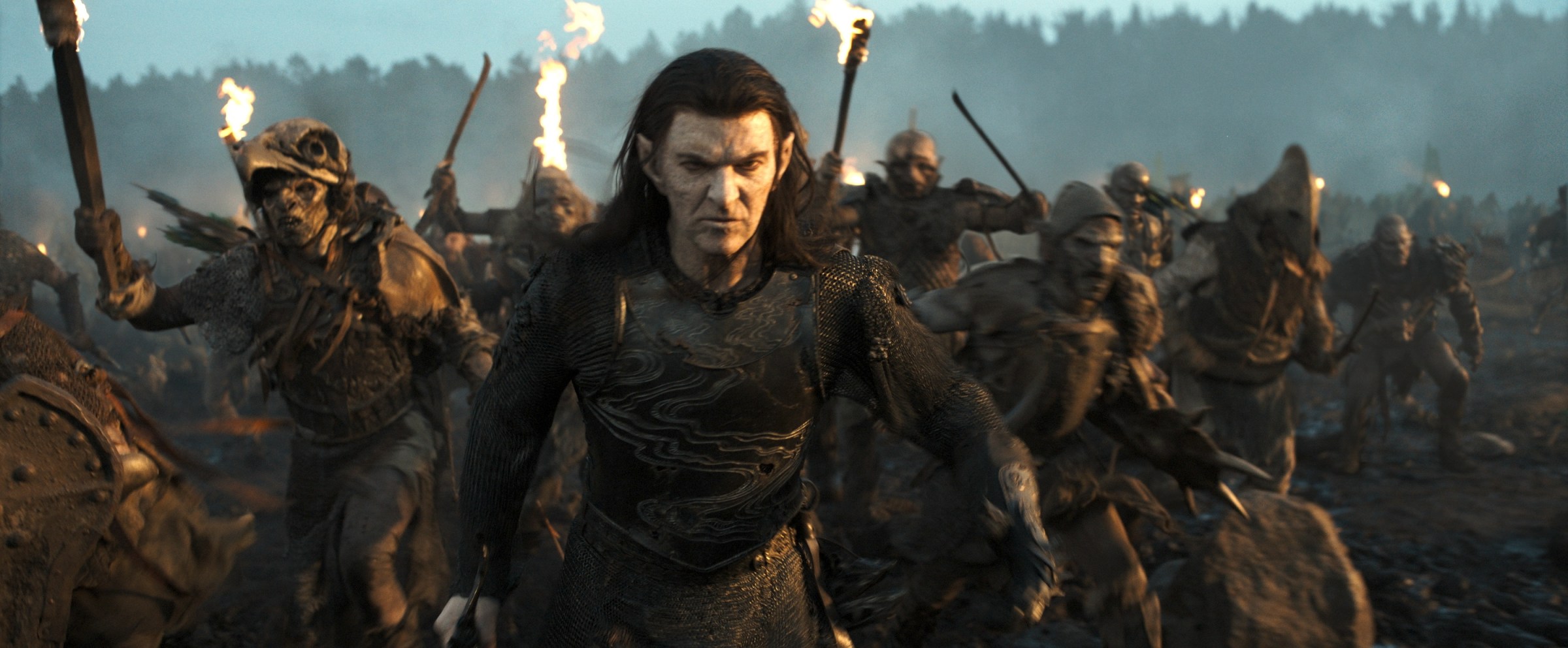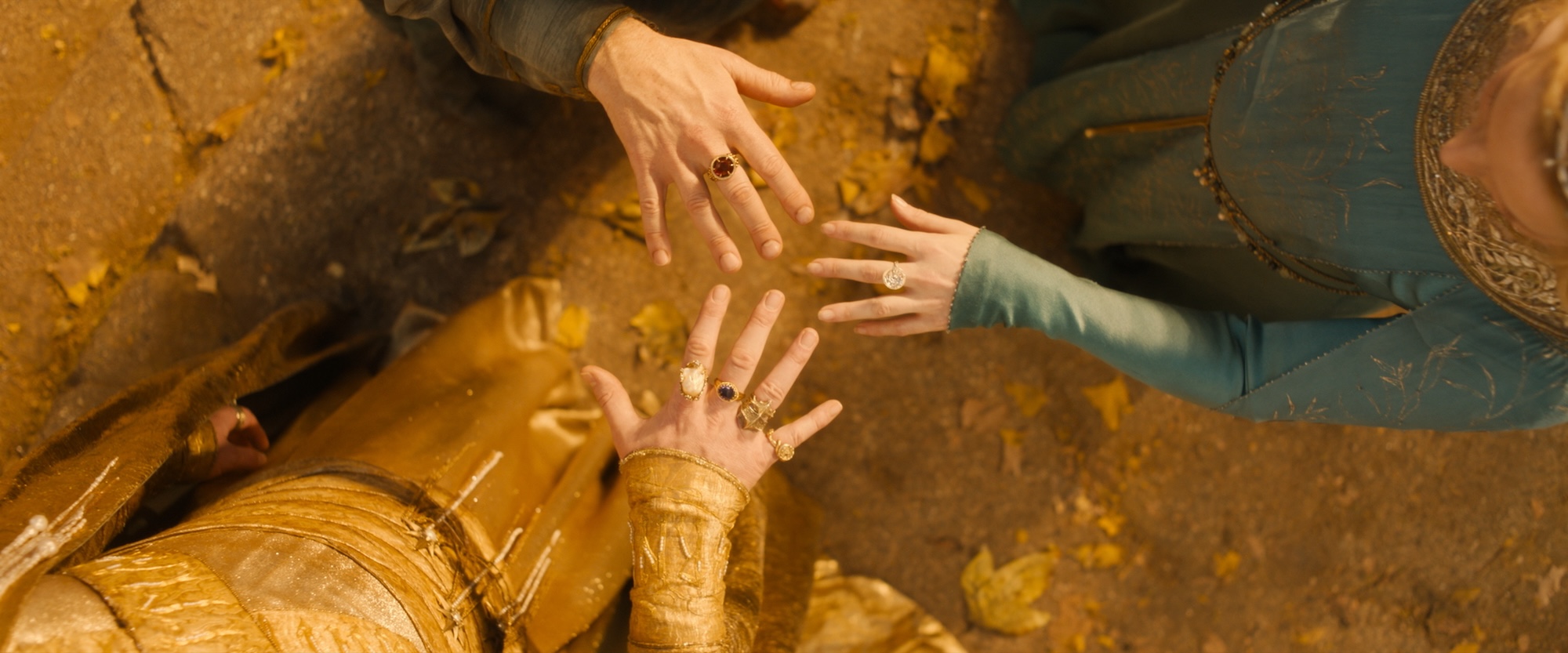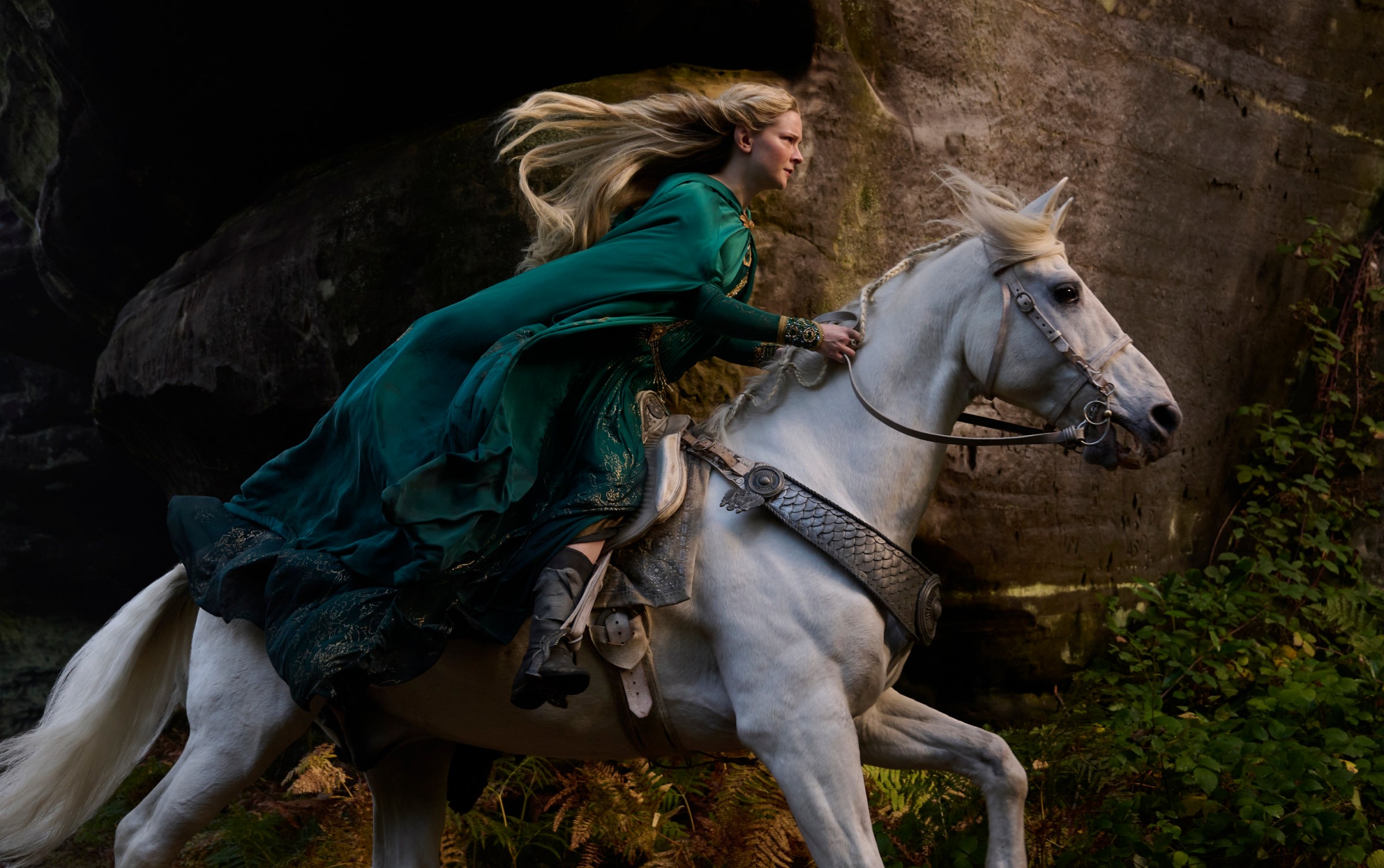Rings of Power introduces moral grayness to a series that doesn’t need it
The universe of The Lord of the Rings is extremely complex. There are Valar and Maiar, magical trees everywhere, ambiguously powerful rings, and at least two Dark Lords who want to throw the world into chaos. One thing that JRR Tolkien always made clear in his universe is the difference between the good side and the evil side. Good men may be seduced by the forces of darkness, but ultimately the morality of The Lord of the Rings has always been black and white, a fundamental necessity for a story whose core is simply good versus evil. Which is precisely why it is so strange that the prequel series, The Lord of the Rings: The Rings of Powerinsists that all her characters have moral shades of gray.
It’s not alone in this trend. The past 15 years have seen movies and television obsessed with moral ambiguity. Walter White was forced to become evil because of an unjust system, everyone in Game of Thrones had their ideals compromised by the reality of the world, and you can’t throw a rock in the Marvel Cinematic Universe without hitting a villain we’re supposed to believe had some good points. There was a time when these blurry lines between right and wrong felt like a sign of maturity, an indication that what we were watching was for adults rather than children. But now that it’s the default state of most TV shows and movies, it too often feels hollow and obligatory. Moral ambiguity has become a cheap way to cover up a story that has nothing meaningful to say, and surface-level flaws have become camouflage for characters too flat to make concepts like morality even feel relevant. So it should be obvious why 0=The Rings of Power is so heavily invested in the concept.
This problem was certainly present in the show’s first season, but by the first three episodes of Season 2, it’s become impossible to ignore. The entire series, it seems, is built around questions of moral grayness that feel at odds with the universe it’s set in. It’s as if the writers are convinced that small flaws and human error are the key to relatability, and that relatability is important for all of the characters. Scene after scene, characters debate the morality of seemingly obvious issues. It’s one thing to know that the elves were freely wielding Sauron’s Rings of Power when they didn’t know who made them, but after an entire scene about how they’re the tools of the enemy, it felt ridiculous to see the elves don the rings anyway, a sudden introduction of ends justifying means that were simply alien to Tolkien’s world by design.
Take, for example, the wildly uneven portrayal of Sauron throughout the series. The Rings of Power seems obsessed with the question of why we would want to see Sauron act if he were all-out evil. The answer is simple, really: sometimes evil is interesting. Far from the puerility sometimes associated with good-versus-evil stories, a well-told story that closely follows a truly evil character like Sauron would be fascinating and horrifying. Seeing him prey on the subtle insecurities and exploit the weaknesses of some of Middle-earth’s most legendary heroes could be beautifully tragic, a Tolkien-esque reminder that temptation is possible for anyone. Instead, showrunners J.D. Payne and Patrick McKay have opted to make Sauron vaguely human, adding sour notes like his surprise that Celebrimbor would trick Gil-galad, or the confusing scene in which he’s seemingly tricked by Adar to open Season 2.
It’s the kind of choice that, on paper, makes perfect sense as a sign of prestige TV. Then again, all the best shows of the last decade have had complex characters and comprehensible villains, full of flaws and imperfections. But in practice, adding superficial qualities like these to Sauron doesn’t serve to deepen his character; it only weakens everyone around him. Their inability to see through his inconvenient plot doesn’t feel like they’ve been duped by a master of evil, a powerful near-demigod who exists as a literal higher order of being than they are, but rather like they’ve been duped by an idiot because they’re just a little bit dumber themselves.
This kind of false morality is introduced throughout the series. A side plot, barely introduced in episode 3, concerns orc fears over the return of Sauron. Adar greets this with genuine concern. Canonically, orcs were created by Morgoth, the greatest evil in Middle-earth, as tools for his command and fodder for his army. But casually suggesting that they’re supposed to be sympathetic and have feelings without really delving into the subject matter just feels like a complication of lore for no real reason. It’s unclear what it could set up, or how we’re now supposed to feel about the thousands of orcs we’ve seen the heroes of Middle-earth slay.
The same goes for many of the show’s supporting storylines, which feel universally underdone, confusing, and ignored. Ar-Pharazôn’s coup in Númenor, a key historical moment in the kingdom’s downfall, is exclusively relegated to Episode 3 and makes almost no sense when it arrives. It’s difficult to even tell in the scene why what he’s doing is bad or how, exactly, he’s wrong; rather than giving a villain a few good arguments, the show makes him more understandable than the characters we’re supposed to be rooting for. Likewise, The Rings of Power has the potential for a fascinating plot line with Celebrimbor, as we see Sauron leverage his ego and manipulate it for his own ends. But he is taken in so quickly that it makes the Blacksmith seem easy to fool rather than making Sauron seem like a subtle and brilliant manipulator.
None of this is to say that these storylines are bad in the series, but rather that they feel like afterthoughts. Moments like Queen Míriel being seduced by the Palantir, Celebrimbor betraying Gil-galad to feed his own ego, or even the fears of a concerned orc could make for meaningful, intricate moments that deepen our understanding of both the character and Middle-earth. But they’re rolled over so quickly and with so little setup that these flaws feel more like empty storytelling gestures than meaningful additions to the story.
Worse, the one morally complex plotline the series does explore – the Elves’ use of the Rings of Power – is so changed from the source material that it feels like it’s plucked from an entirely different fictional universe. In Tolkien’s original version, the Elven Rings were not created by Sauron, but rather vaguely crafted using techniques learned from him by Celebrimbor. The Rings of Powerr’s rings were made with his involvement, and the elves know it. It’s a precise shift, one that moves the storyline from one of the subtle ways evil can deceive good people to a story about how it’s worth appeasing evil when there’s personal gain to be had, like Linden’s revitalization.
It’s a ridiculous idea, but it also blurs one of the most important moral ideas in the series: that goodness is not relative, and that an inherently evil object shouldn’t be used for good because it shouldn’t be used at all. Isildur being seduced by the power of the One Ring into believing he can avoid Sauron’s influence should be a defining moment for the world of Middle-earth, the final tragic moment at the end of the Second Age. That the Elves would make such a decision, willfully, years in advance, robs the future of the story of all its gravity.
It’s utterly baffling to watch this debate between the Elves play out in the first few episodes of Season 2. It’s so fundamentally un-Tolkien that it’s hard to imagine how it could have become a series so seemingly beholden to Tolkien’s vision and world. The Second Age is largely one defined by deception. Sauron wanders the world, deceiving everyone he can find in an attempt to return to his former power. During this time, all of Middle-earth is affected by him in one way or another, some far more catastrophically than others, but deception is key. Allowing the Elves to make this choice willingly only further robs Sauron of his deceptive power. But more importantly, it also betrays Tolkien’s core message about the subtle ways that pure evil can corrupt even the greatest and most brilliant of men.
No character suffers more from this idea than Galadriel. Her being betrayed by Sauron in Season 1 was one thing, an understandable and established fact: Sauron is a master of evil and deception, and he will exploit and exploit any weakness he sees to twist your mind to do his bidding. But in Season 2 – when she realizes that she has aided Sauron, and that Sauron had a hand in making the three Elf Rings powerful – she insists that they be used anyway. It’s a complete inversion of who she was in Season 1. The show begins with Galadriel as the only Elf who still believes that Sauron lives, and also believes that he is so dangerous that he must be hunted down at all costs. Now, a season later, she’s begging the other Elfs to use Saruon’s magic. That she was once deceived by him while he was in disguise is one thing, but that she is deceived by him when she knows that’s what he wants feels unimaginably stupid for such an important and heroic character.
And the greatest tragedy in this whole mess is that none of it was necessary in the first place. Tolkien’s story, and the entire Legendarium universe, is not built for the morally immature—and that’s okay. It’s the foundational modern fantasy universe, and one of the best settings ever for good-versus-evil stories. And it shouldn’t be anything more than that. The struggle to remain good in a fallen and complicated world is compelling enough on its own; they don’t need any extra arguments for evil or the prestige-TV insistence that there’s no such thing as good and bad. In trying to turn The Lord of the Rings into great TV, Payne and McKay only succeeded in robbing Tolkien’s universe of what makes it special.
The first three episodes of Lord of the Rings: The Rings of Power season 2 are now streaming on Prime Video, with new episodes dropping every Thursday.



